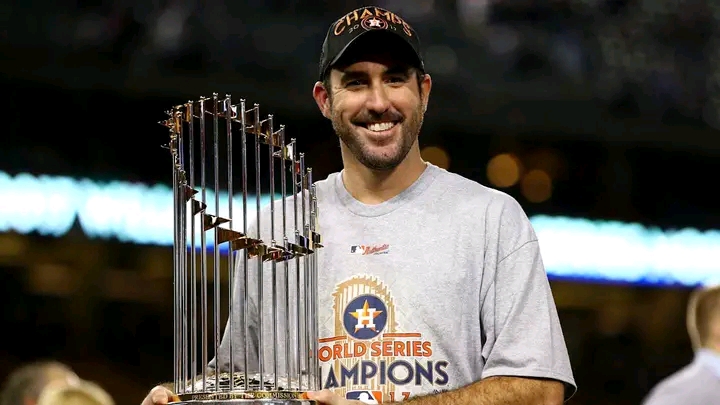The Chicago Cubs’ decision to not trade for Justin Verlander at the 2017 deadline has haunted the nightmares of fans for years. Seemingly on the decline, the veteran right-hander and former Cy Young winner carried a 4.07 FIP and 1.279 WHIP through the midway point in the campaign, not exactly the ace-like stuff he’d shown for much of his career.
Instead of the Cubs, it was the Houston Astros that swung a deal for him – and the rest, as they say, is history. Verlander dialed in with a 1.06 ERA in five starts down the stretch for Houston, and was huge for the club in October as the Astros won their first World Series in franchise history.
From there, things only got better for Verlander and Houston. Between 2018 and 2022, Verlander pitched three full seasons (he underwent Tommy John surgery that allowed him to make just 1 starts between 2020 and 2021): in those three campaigns, he won the American League Cy Young Award twice and finished runner-up once.
Cubs’ decision to not trade for Justin Verlander feels like an all-time miss
Hoyer acknowledged the factors the team was considering as they weighed whether or not to make a run at Verlander in 2017 as the Cubs looked to shake off their World Series hangover and defend their title. Those included age, injury – and wondering whether or not his struggles were due simply to wanting a change of scenery after spending 13 years in Detroit.
It didn’t take long for Hoyer and his boss at the time, Theo Epstein, to learn their lesson. In 2018, the Cubs acquired a struggling Cole Hamels from Philadelphia and the veteran left-hander dazzled, posting a 2.36 in a dozen starts down the stretch.
“The next year with Cole Hamels, we didn’t overthink it. He was struggling, and we went and got him. It felt like literally the minute he put our uniform on, he was dominant. That is a little bit of the human factor. You can go pretty poor making that bet over and over. But there are times when that can make sense with a veteran guy with that kind of track record.”
By that point, the team seemed to be on the decline. They collapsed late and were forced to play a one-game, winner-take-all Wild Card game against the Colorado Rockies, losing 2-1 in 13 innings on a blustery night at Wrigley Field. The next year, the team missed the postseason entirely, ending Joe Maddon’s time as manager. Meanwhile, the Astros won 103 games and advanced to the ALCS again behind Verlander’s second-place finish in Cy Young voting and tenth place finish in AL MVP balloting.
If Verlander’s dominance during that stretch doesn’t sting enough, at least we can re-hash the move the Cubs did make that summer: acquiring Jose Quintana.
•
15 biggest draft busts in Chicago Cubs franchise history
•
15 worst Chicago Cubs free agent signings in franchise history
•
Ranking the 10 best Chicago Cubs moves during the Theo Epstein era
•
Ranking the 5 best moves the Chicago Cubs have made in the Jed Hoyer era
•
Ranking the 10 best Chicago Cubs teams by winning percentage
•
6 of the worst Chicago Cubs MLB Trade Deadline deals in the last 15 years
